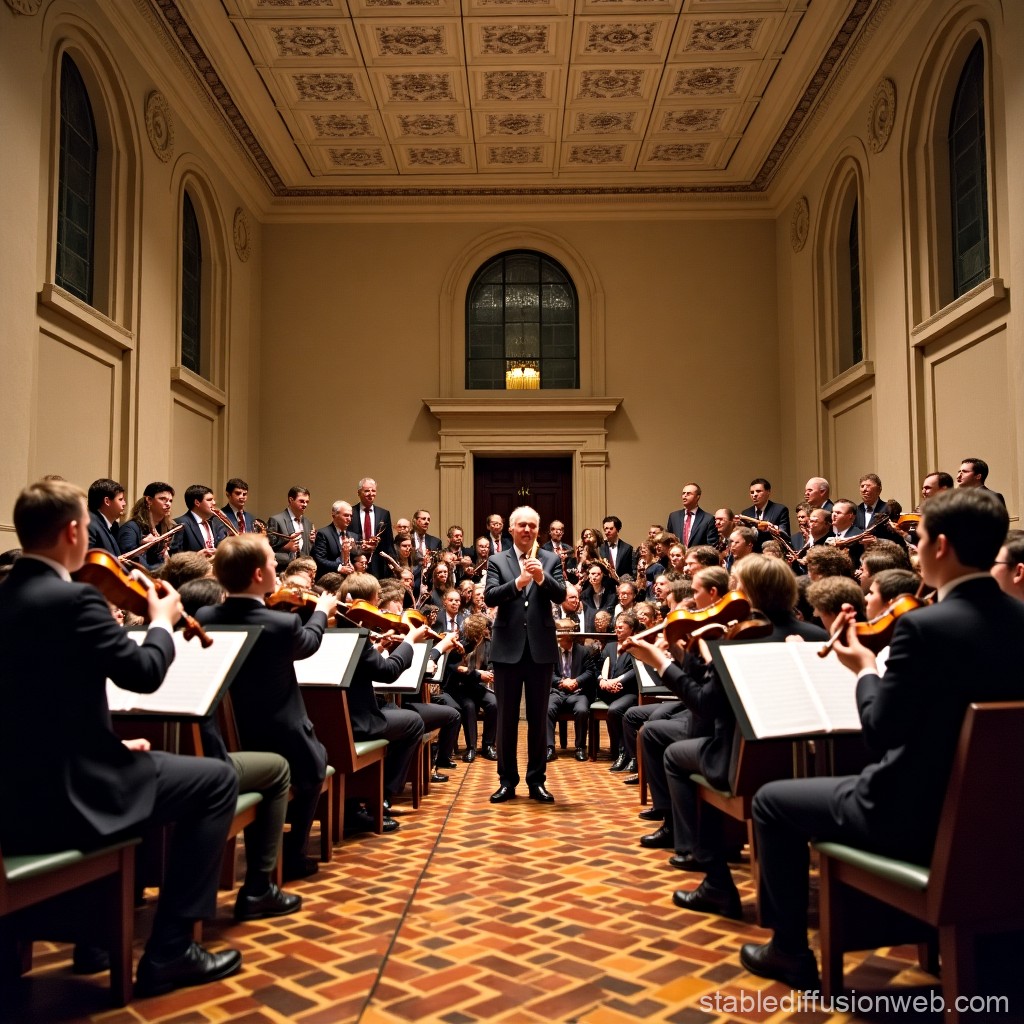
A The production of any great art form, and classical music is no exception, does not usually occur in a society dominated by the basic material demands of food and shelter. Art and music have flourished in those periods of history, and those parts of society, in which the luxury of free time and material wealth has allowed such a culture to take precedence over more material matters. In the medieval European world, it was thus primarily in the closed communities of the church and monastery, and royal courts that music, literature and learning were able to flourish.
B It was not until 18th century that this situation changed to any great extent, and the rise of an economically independent middle class meant that concert going became a public activity for anyone who cared to buy a ticket. It is worth remembering that the idea of classical music widely accepted today did not exist until about 300 years ago. Performing music in concert halls to a paying audience, as something inherently pleasurable and significant, was pretty much unheard of until the 18th century, and not widely established until the 19th. The concert venue, the audience, and the idea of ‘masterpieces’ of classical music, were all effectively invented during the course of the 18th century – in London, Paris, Vienna, Berlin and other European cities where the arts in general were blossoming.
C Today, music that was originally written for a concert venue may appear, out of its original context, in an advert or film. Conversely, music written specifically for films is sometimes performed live. But nothing has changed music over the last century more radically than the invention and dissemination of recording technologies. However, although Thomas Edison originally developed the phonograph in 1877, and wax cylinders were used as early as 1880s for recording music, commercial recordings of music were not generally available to the majority until 1920s. From the mid-1980s onwards, the vinyl disc gradually gave way to the new technology of the CD, but just a decade later, the digital MP3 file was already displacing the CD as the favoured way to produce records music. Yet now, people have more music stored on their phones or computers—which they can call up with the touch of a finger—than would have been contained on all the meters of library shelves of the proud ‘record collector’ of the 20th century.
D Before recording, music was a social event: it involved one or more people coming together to make music. The music lasted for as long as the musicians sang or played, and then it was over. Therefore, there were no recordings that could be listened to again later. In many living or museum religions, probably taken up in the kinds of societies where time was not experienced as linear, music was treated as a means to achieve a special, even a spiritual, state. To be heard, live music created a one-off event.
E These days, however, technology makes almost all the world’s music instantly and constantly available to anyone with access to simple and cheap gadgets designed for playing it. Music thus floats free of any specific occasion or space. It is no longer restricted to a particular audience or group of musicians. For the first time, music (any music) can be entirely personal and private. This is one of the reasons that the ‘classical’ label becomes harder to pin down. One of its essential aspects – a performance defined by concert halls and opera houses - is dissolved by digital recording formats. As a consequence of all music, classical music included, can become any person’s soundtrack for activities such as commuting, exercising or shopping.
F The ubiquity of music as recorded sound means that it’s very easy to overlook perhaps the most definitive aspect of the classical music tradition – the fact that it is a written or notated music. Though classical music may lack a precise definition today and can mean quite different things to different people, at its heart is the idea of a music that has remained viable over the years because it was written down in some form. The original of what music historians think of as classical music dates from the ninth century, when a system of musical notation was first developed. Before this time, singers in religious services in cathedrals or monasteries had to learn by heart a huge repertory of chants. The first attempts to notate music were intended to help them remember these. Over the next thousand years, notation became more complex, incorporating such aspects as rhythm and pitch, allowing composers to rework and refine their musical ideas. Put very simply, the history of classical music, in all its varied forms, is the history of a tradition that grew out of the possibilities of musical notation.